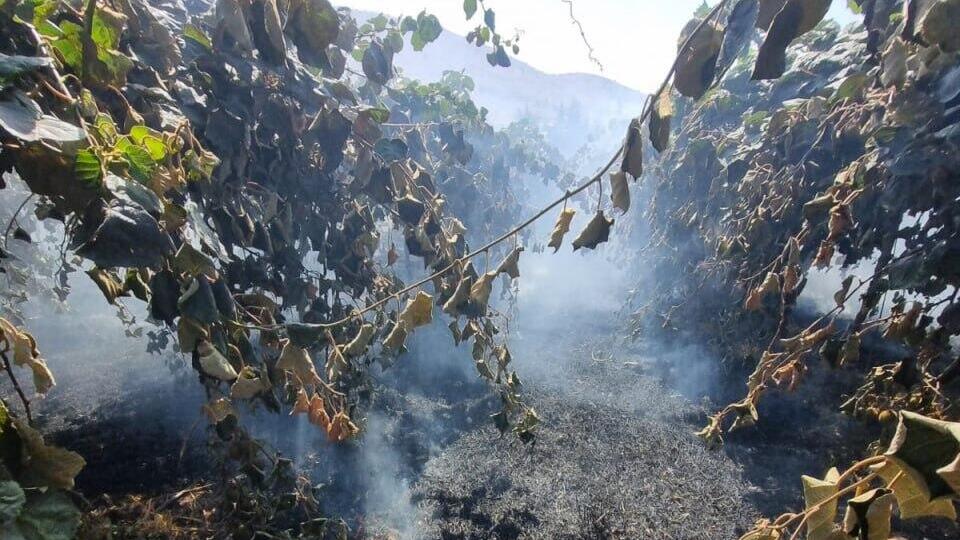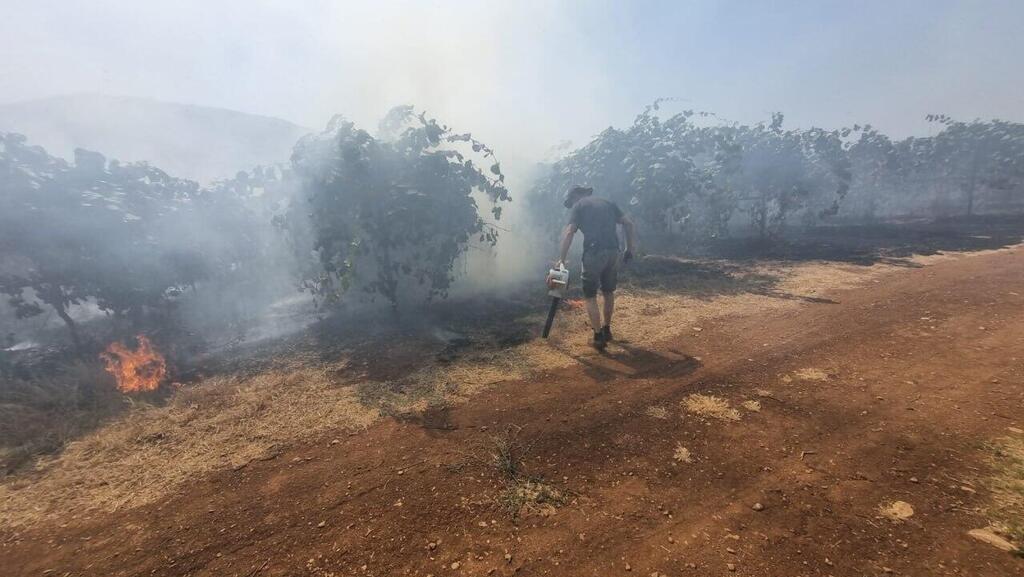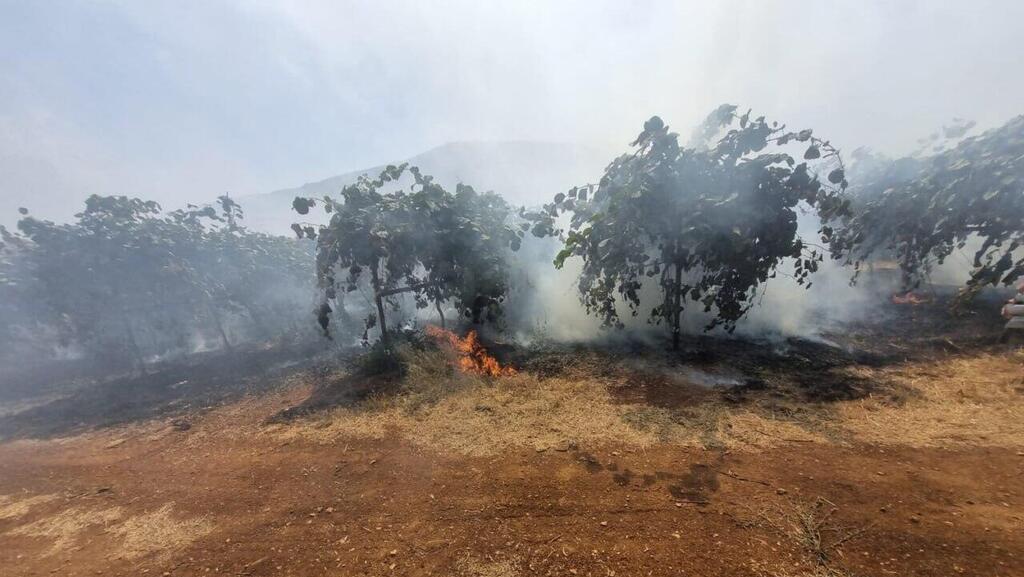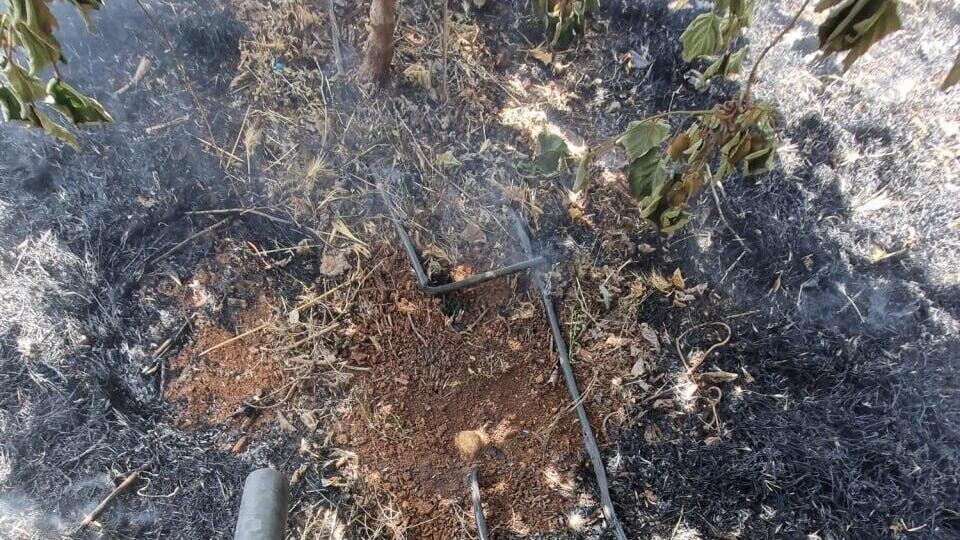Farmers from a Kibbutz on Israel's northern border on Sunday set out to assess the damage caused to their kiwi orchard from a fire over the weekend, that started in nearby Lebanese territory and quickly spread. They said they suspected that the fire was deliberately ignited by Hezbollah operatives, who have recently been behind a series of provocations along the border.
Read more:
"Approximately 30 dunams (7.5 acres) of fruit-laden trees ready for harvesting were burned," says Amit Cohen, who is in charge of the orchard, estimating the damage at hundreds of thousands of shekels.
"We still don't know if we will have to remove the trees in the entire orchard, and we are waiting to see how they will respond to the severe damage," he says. "The irrigation infrastructure is very expensive and was completely burned. We replaced it over the weekend so that we could try to rehabilitate the trees and provide them with water."
On Friday, Cohen was alerted to smoke coming from a fire on the western boundaries of his kibbutz, near the border fence. For hours, firefighters and the local farmers fought to prevent the spread of the fire and managed to reduce the extent of the damage. "We went into the area only this morning, with officials from the insurance company and agronomists, to assess the damage and understand how to deal with it," he says.
Although they cannot be sure how the fire started, residents say that this was not the first time in recent years, that they have had to deal with fires ignited by the Lebanese, near the border. "We saw how the Lebanese firefighters were present on the other side of the border, but they did nothing to prevent the flames from spreading to our territory - they only made sure that they did not spread to their side," one resident says. "This is by all means an act of terror."
He went on to explain that his neighbors to the north often burned their trash, amid the economic crisis in Lebanon, which is worse in the south. "They burn their waste close to the border, as far away from their own communities and as close to the fence as possible and almost always, they do it when there are westerly winds, so we are affected by it," he says.
"They do this not only to let the fire spread to the Israeli side but also to detonate landmines near the fence." Indeed, while teams were working to extinguish the fire in the orchard landmines were set off and exploded.
In early August, Hezbollah operatives attempted to start fires in several locations near the border town of Metula, hoping that the flames would damage the border fence and the special security measures installed on it, as well as spread to the nearby agricultural fields. Some of the fires occurring in the area were a result of IDF firing smoke grenades to disperse Lebanese demonstrators beyond the border.
The farmers say they expect the IDF to help them protect their orchards and other crops. "We are often prevented from accessing the border area, and someone needs to tend to the crops and spray chemicals on the vegetation around our fields and orchards to prevent the spread of fires from Lebanon to our territory," Cohen says.
"In many cases, if a fire starts in Lebanon, you just have to pray that it will be dealt with in time and extinguished before it spreads significantly, this is an area that is not adequately maintained to prevent damage," he says.






